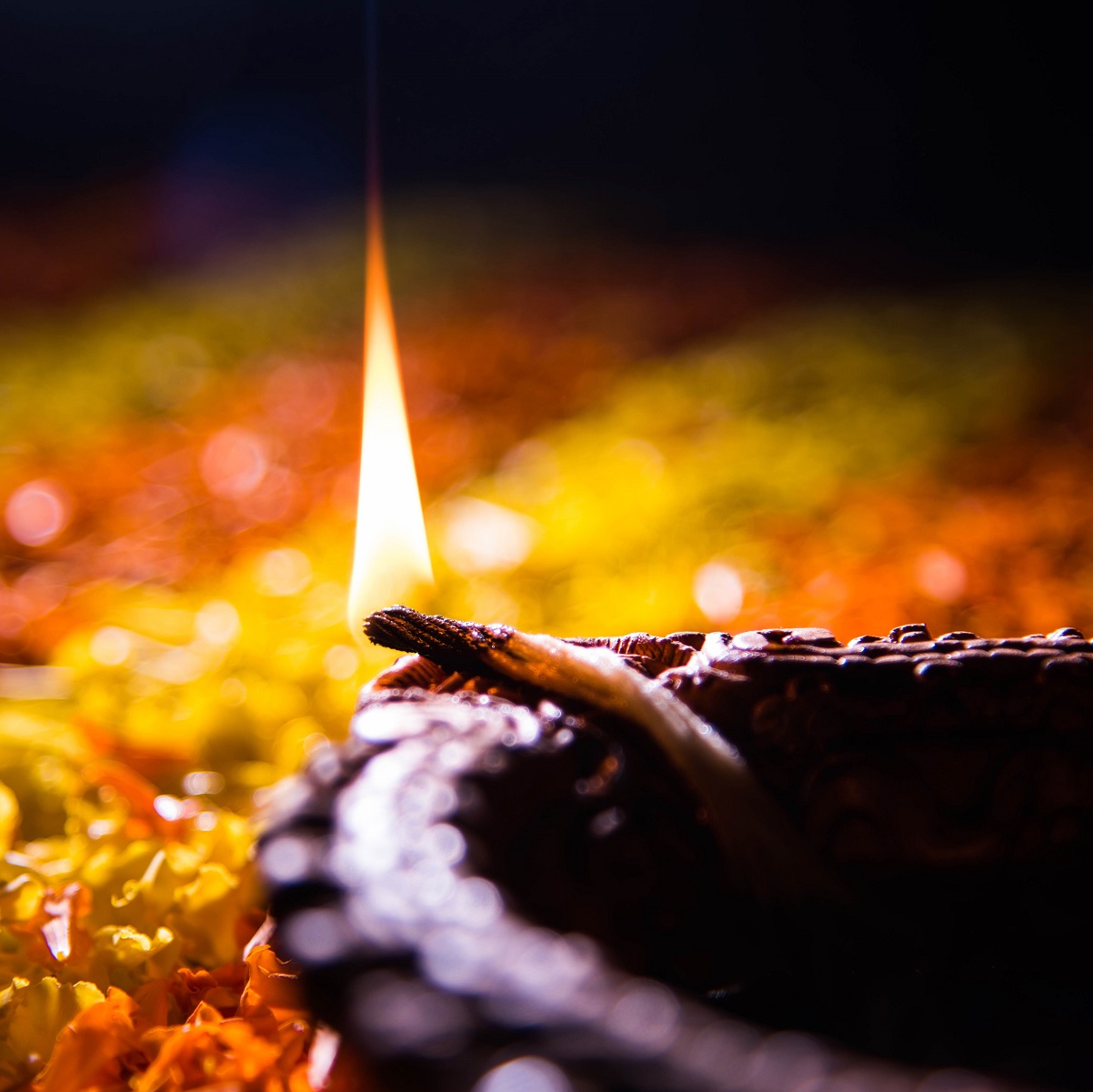A few months ago, Dayal Singh, the elder brother of Suchan Singh, who resides in Peshawar, was shot dead by unknown assailants in his shop. Despite this tragic event, Suchan Singh endured many painful hurdles to conduct his brother’s last rites since no crematorium was available in Peshawar.
Having to take his brother’s lifeless body to Attock incurred a cost of approximately one lakh rupees. Given Suchan Singh’s poor financial circumstances, managing this amount was not possible for him. However, with the community’s support, he could somehow collect the required funds and perform the last rites of his brother.
A significant number of the Sikh community in Khyber Pakhtunkhwa used to reside in the tribal districts, but due to the unrest there, many of them have migrated to Peshawar.
In 2008, the provincial government announced the construction of a crematorium for these people in Peshawar; however, the plan was never implemented.
In response to this delay, Babaji Gopal Singh, a social leader of the Sikh community, filed a writ petition in the Peshawar High Court, the decision of which is still pending.
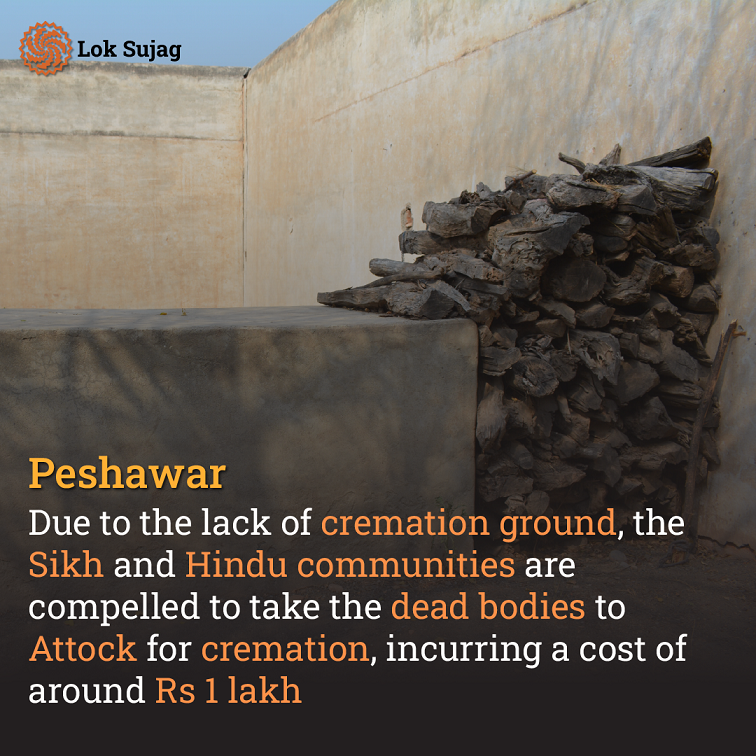
Babaji points out that before the partition of the subcontinent, Peshawar had around ten crematoriums. However, today, there is not even one, despite the Sikh population exceeding 10,000 and many Hindus also residing here.
All these individuals conduct the last rites of their deceased loved ones in Attock District, which is about 100 kilometres (km) away from Peshawar. Approximately two hundred Sikh families in Attock have acquired land on the riverbanks for a cremation ground with their contributions.
The cost of maintaining the site is covered by annual donations from the community.
Babaji states that it is not easy for every family to transport the bodies of their loved ones over such a long distance. Renting a car from Peshawar to Attock costs at least Rs 70,000. As a result, many community members cannot attend the last rites.
He mentions that in August 2020, the provincial government promised to initiate work promptly to provide essential facilities at a crematorium established in the Bara area of Khyber tribal district, which is adjacent to Peshawar. The matter did not progress beyond the mere promise.
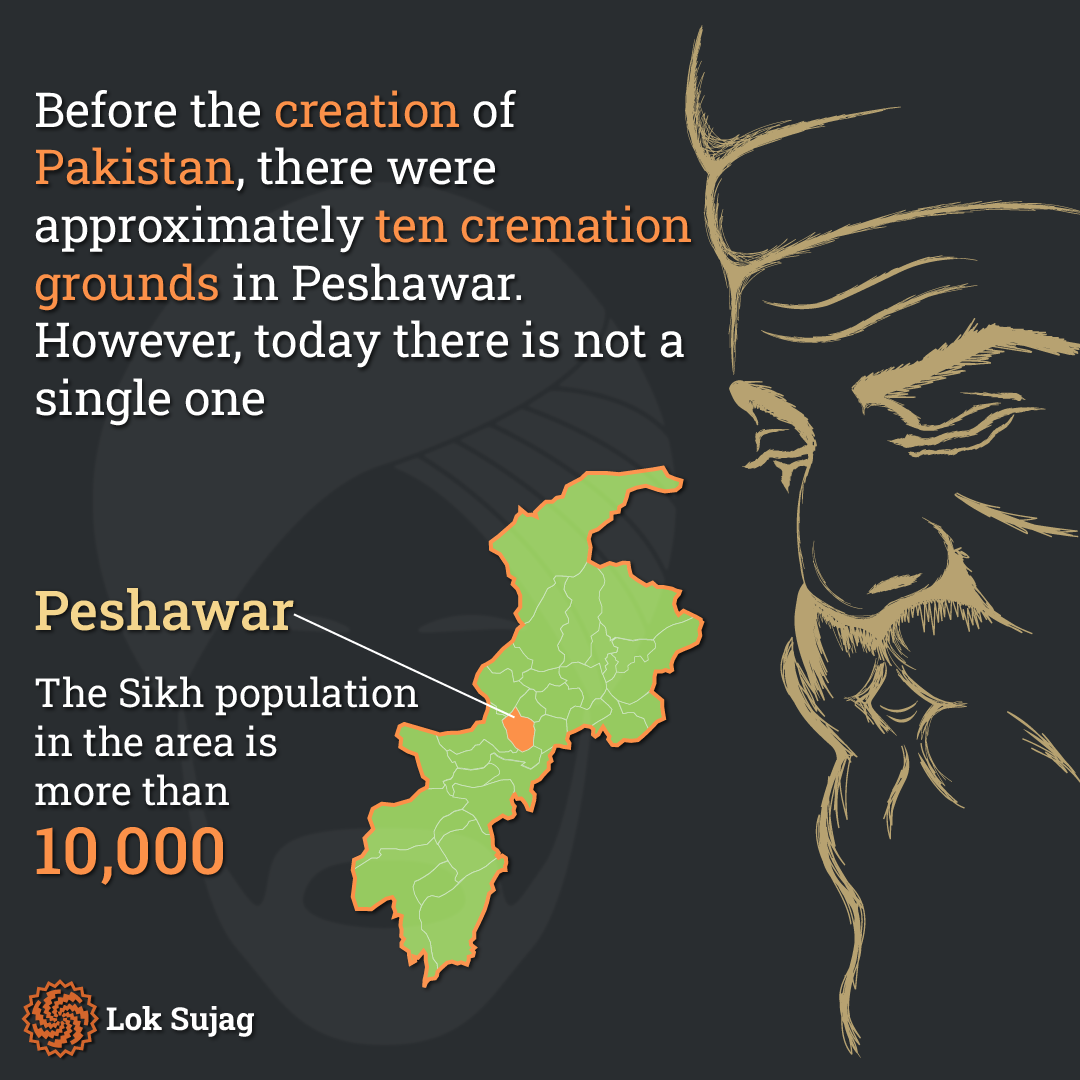
When asked about the issue, the district administration of Khyber stated that they had prepared a detailed report concerning the crematorium. However, they expressed ignorance regarding any specific plan or its implementation.
Babaji asserts that if the necessary facilities are available at Barda’s crematorium and the law-and-order situation in the area improves, it will become more convenient for the Sikh community in Peshawar to conduct the last rites of their deceased and organise religious ceremonies there.
Harun Sarab Dayal, an advocate for the rights of religious minorities, reveals that during the second government of Tehreek-e-Insaf in Khyber Pakhtunkhwa, 5 billion 20 crore rupees were earmarked for the welfare of religious minorities.
Out of this allocation, 1 billion 13 crore rupees were designated for developing crematoriums and Christian cemeteries.
However, he asserts that the committee formed to construct crematoriums included people based on political affiliations rather than expertise. He further points out that the locations identified for these facilities were not suitable for this purpose.
According to Hindu religious beliefs, a cremation ground should be situated away from populated areas and preferably located on the banks of a river. Once a place has been designated for this purpose, it cannot be changed.
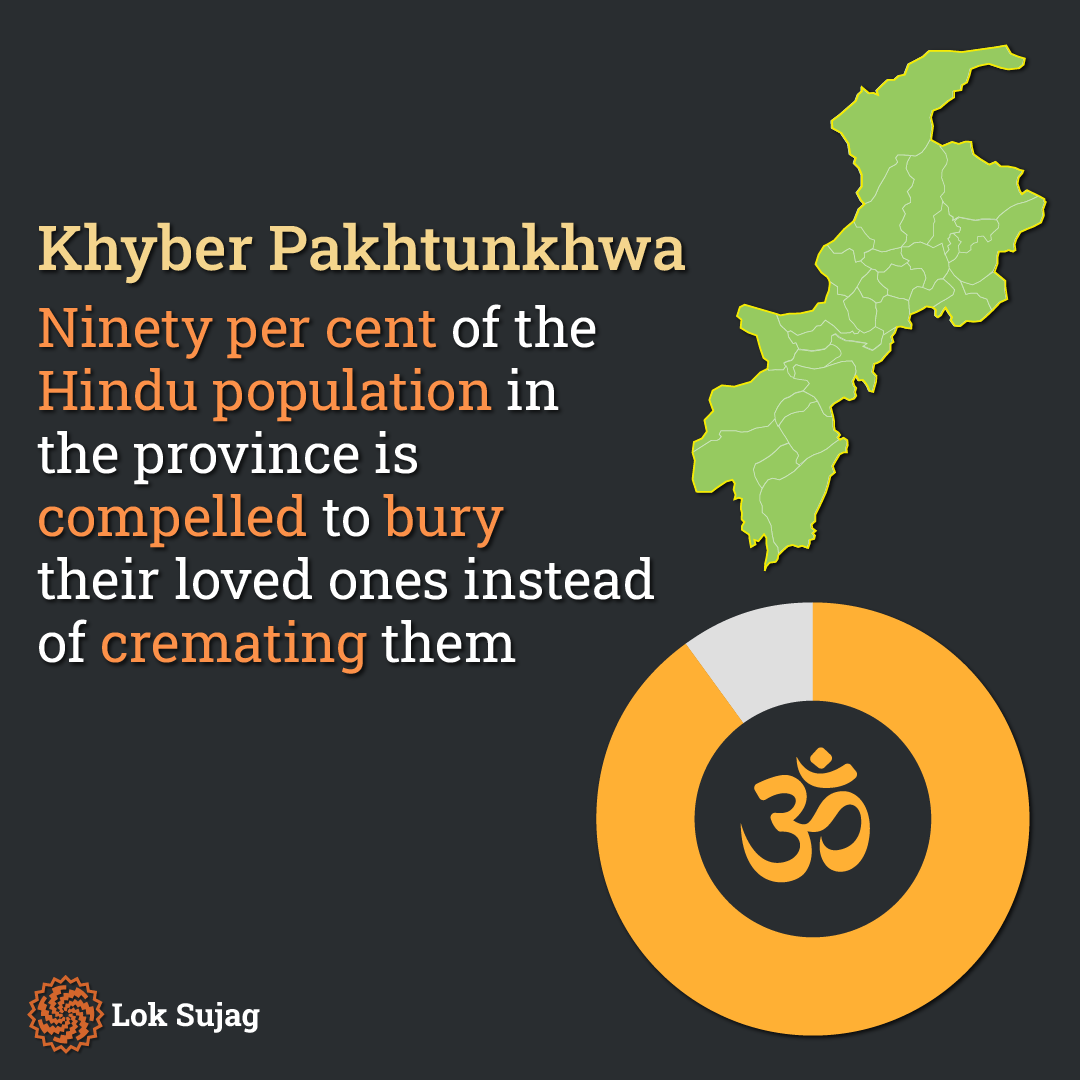
He mentions that currently, there are nine crematoriums in the province, but only one has been constructed following religious principles.
Moreover, most of these crematoriums lack the necessary facilities. As a result, 90 per cent of the Hindu population in the province is compelled to bury their loved ones instead of performing cremations.
Bara
Muzamil Shah’s family has been residing in the building of the local crematorium in Tehsil Bara of Khyber for the past twelve years. This fort-like cremation site is established in an area called Kalinga, adjacent to Bais Kanal. As the Sikh community has migrated from this area, Muzamil’s family is now responsible for its upkeep. However, the place lacks several essential facilities, including electricity.
Muzamil states that on several occasions, authorities visited the site and promised to provide electricity, install a tube well, and offer two job positions for maintaining the place. These promises have not been fulfilled yet.
When asked about this matter, Rizwana Dar, the Deputy Secretary of the Awqaf and Religious Affairs Department, stated that the department has no information regarding this issue.
She further mentioned that the minority representative in the provincial assembly had not made any contact with the institution concerning this matter.

Wilson Wazeer, the member of the provincial assembly elected on the only minority seat of the merged districts, explains that the reason for the lack of facilities in the Bara cremation ground is due to the district administration’s delay in preparing the PC-1 (Project Concept Paper) and the cancellation of the annual development fund.
Swat
Sardar Homi Singh, a social worker dedicated to the welfare of the minority community in Swat and Buner districts, reveals that the crematorium in the area was destroyed during the 2010 floods. Subsequently, a new crematorium was constructed on the Swat Mingora Bypass with the support of the Muslim population. However, it was severely damaged again in the floods that occurred last August.
Following the flood, the government initiated its reconstruction with a budget of Rs 80 lakh, but the project has not yet been completed.
Buner
According to Homi Singh, the cremation ground in Buner district was built in 1980, but during the construction of the nearby bypass, half of it got covered by the road. The administration has allocated Rs 50 lakh to build a new crematorium at a different location, but the work has not yet commenced.
Tirah
Manjeet Singh, a resident of Tirah village, a tourist destination in the Khyber district, revealed that some time ago, approximately 450 Sikh families were living in this area. However, due to unrest, they were compelled to abandon their homes, agricultural lands, and businesses and relocate to Peshawar, Hasan Abdal, and Nankana Sahib.

He states that Shalobar Qamber Khel has a crematorium and a children’s crematorium designated for minorities. Similarly, Malik Deen Khel has three crematoriums and a children’s cemetery owned by the Sikh community, all equipped with the necessary facilities.
Manjeet Singh mentions that the Sikh community has been residing in this area for many generations, providing them a sense of security. However, the lack of boundary walls around the crematoriums and graveyards has led to continuous damage by cattle and animals in these places.
Mardan
Mardan has an ancient cremation ground for the Hindu community, situated on three kanals of land. However, the population around it has grown significantly over the years.
For Sikhs and Hindus, utilising a cremation ground in a Muslim-majority area is not easy, mainly due to the fear of religious tensions.
Kohat/Hungu
In Kohat district, there is a cremation ground for Hindus and Sikhs. People from minority communities residing in distant areas like Dera Ismail Khan (233 km away) and Bannu (140 km away) come here to perform the last rites of their loved ones since there are no crematoriums in their respective districts.
Also read
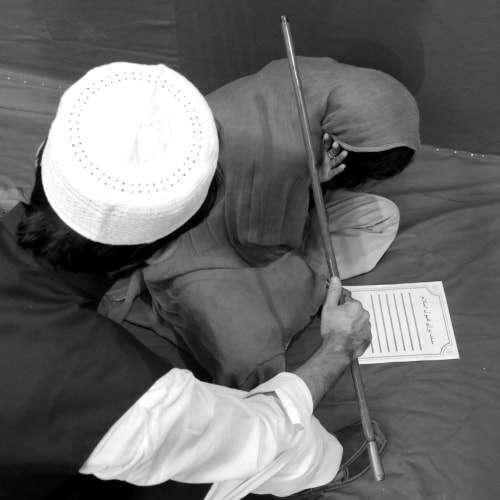
Why the government needs to standardise conversion certificates to protect the rights of religious minorities
According to Haroon Sarab Dayal, this cremation ground is not located on the riverbank. Therefore, after cremating their relatives, people here collect and dispose of the ashes in the nearby river near Khushalgarh on Pindi Road.
Due to the distant location, people have to travel a long way for this purpose. Therefore, it is essential to construct a crematorium in Khushalgarh itself.
Hakam Das, a leader of the Hindu community who now resides in Hasan Abdal after migrating from the tribal district of Kuram, explains that 650 families from his community in Kuram left the area following the Shia-Sunni riots in 2006.
Due to security threats, they relocated to Kohat, Peshawar, and Hasan Abdal.
He explains that the lands left behind in their native areas face encroachment issues. One such case is the Hindu Bhari graveyard in the Amalkot area of Karam, where they used to bury small children. Despite informing the administration and security agencies about the attempts of local people to occupy it, no action has been taken so far.
According to Rizwana Dar, the Khyber Pakhtunkhwa government approved the purchase of four kanals of land for a crematorium for the Sikh community of Peshawar in February 2019 for Rs 90 lakh. Currently, the search for a suitable site is still ongoing.
A few months ago, a site was chosen with the advice of the Sikh community. However, objections were raised by the nearby Muslim population, resulting in the decision being cancelled.
Published on 3 Aug 2023
